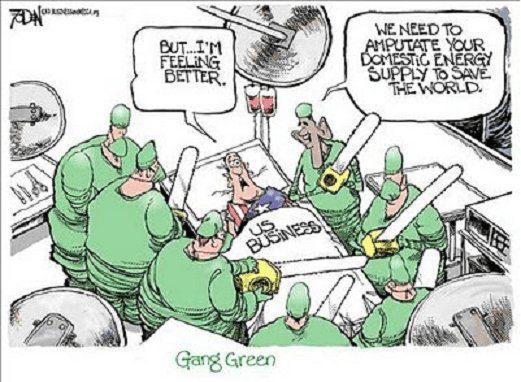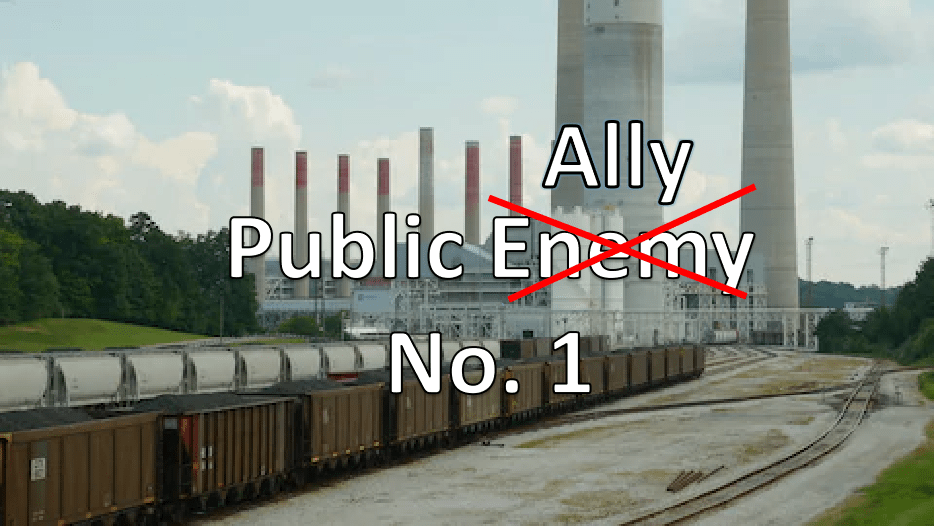Terry Etam writes a BOE Report Column: The world faces both a hydrocarbon shortage and a divest fossil fuels movement. What next, oil patch? Excerpts in italics with my bolds and added images.
Today’s question is one only the hydrocarbon crowd can answer: What’s your game plan from here forward?
There are a thousand occupations and situations, each with its own decision tree. Despite the potential variance, it’s still a valid question, because we globally we are at a crossroads of some major significance. The well-being of much of the world’s population depends on what the hydrocarbon industry does over the next few years. At the same time, the pressure is building for the hydrocarbon industry to shrink and wither (as in the wildly successful divest fossil fuels campaign, or banks cutting back on oil/gas loans to curry favour with Those That Matter).
The question is not an easy one given the dramatic reframing of the hydrocarbon industry over the past few years. We used to be the good guys, the world’s fuel providers, a dynamic and entrepreneurial and fast-moving assembly of doers.
Then the narrative changed, and the industry went from relative obscurity to Public Enemy Number One. By 2019, public animosity towards it reached a peak, with orchestrated mass protests around the globe. 2020 brought a near-death experience as Russia and OPEC decided to decimate prices in a battle for market control, and all the anti-hydrocarbon protesters switched from protesting to cheering, famously claiming that “oil was dead”, that oil prices would never recover because EVs were causing rapid demand destruction, and that the humane thing to do now was to justly transition all hydrocarbon workers to other industries.
Even typing that stuff now sounds like an alien experience, like walking around in a crowd without a mask.
The reason those conversations feel so outdated is because, today, it is clear that oil is about as dead as the internet. Some will of course say that high oil prices will hasten a transition to renewables, and that is true that it will make renewables more cost competitive (though still no match on the reliability front).
But consider that a rapid transition to renewables is impossible from a mining perspective alone.
The IEA has said that a global Net Zero 2050 transition would require four times the number of critical mineral mines by 2040 (a virtual impossibility when governments are making mining harder everywhere). And the Geological Society of Finland calculated that a full transition via renewables/EVs would require more critical metals and minerals than there are known global reserves.
If you are still on the fence as to whether hydrocarbons’ days are numbered, consider that Germany, the world’s most advanced energy-transition country, just days ago mused that drilling for new oil/gas deposits in the arctic sounds like a pretty good idea.
Consider also that this is the new-ish Green-led government saying this. Keep in mind also that any arctic development takes years at a minimum, so these developments have nothing to do with this immediate crisis. If Germany is plotting decade-length oil/gas developments, that tells you all you need to know about the demise of hydrocarbons. There isn’t one.
But that doesn’t answer the question at hand. What will people in the industry do? Will they bolt and get retrained in something else? There are a variety of situations of course, but one is far more ominous than the others. Here’s a bit of a dissection.
Process people will most likely keep processing; any occupations that are in perpetual flow states will likely not stop because of a lack of employees. If you are a gas marketer or pipeline scheduler or refinery manager, there isn’t a visible break point in the continuity of business.
But producers are different. Much different. Next year’s barrel of production won’t necessarily and automatically appear as part of a continuous flow. A lot of very capable brain power needs to be enacted, crews hired and managed, etc. Finding and developing new oil/gas flows is a choice.
If no one chooses to find and produce more petroleum, the flow slows, then stops. If geological talent dries up/retires/moves on, new production doesn’t just happen. Same with drilling crews or completions experts or – dare I say it – truckers.
Anti-hydrocarbon sentiment rums deep in academic institutions, yet it is those very institutions new employees will have to navigate if they are to land in the oil patch. It is no longer “just another option”. There is stigma attached to petroleum programs.

There is venom coming your way from complete strangers. It should then be no surprise that students are acting accordingly; they are going elsewhere. In one US study, from 2016-19, the US petroleum engineering student count fell by 60 percent, and no doubt has fallen further since. Even here in the heart of the Canadian oil patch, the University of Calgary has suspended the petroleum engineering program after the student count fell to an all time low of 10 – and that’s over a two year period.
What if no one chooses to look for oil anymore? Yes, ten thousand western elites will cheer wildly, but billions of trucker-grade people around the world that need that fuel for survival will say WTF, or some such local equivalent.
Those ten thousand western elites will tell all the global plebeians Hey, don’t worry! Solar panels are on the way. And the billions will say Yeah…but can I get a fridge that has power for more than six hours a day? And western elites will say Nope! But don’t worry batteries are on the way. And billions of those plebeians will say Great! When? And western elites will say Battery storage is cheaper than its ever been! And the plebes will say Great! When? And western elites will say Death to fossil fuels! And the plebes will ponder in awe the presumed mysticism and superiority of elite non-sequiturs, little conversational re-directs that the great unwashed masses simply aren’t worthy of comprehending, and then they will starve to death.
And the hydrocarbon producers will be sitting there wondering what to do next. They’ll answer the phone and second cousin Moonbeam from Toronto or San Francisco will be shrieking about how you’re killing the planet. But you’ll turn on the news and hear that it is a moral imperative to produce more oil since all you oil guys are rolling in money which will be true. But then the politicians will be saying ‘We’ll take that windfall money btw and then whatever is left better be going into green projects. But yes you had better increase production right now and we mean right now but only for this year and then everyone should divest fossil fuels. And we’ll see you in court for all the emissions you’ve unilaterally created over the past century, and maybe the fines will be deductible from the windfall tax and maybe not. We’ll let you know when we’re good and ready.’.
If this sounds melodramatic it isn’t. In fact, the situation is far more critical than it sounds, in terms of global impact: there is a multi-trillion dollar behemoth of a fuel system that keeps humanity alive. It is 80 per cent hydrocarbon-based. There is at present no substitute. Most parts of that system function conditionally – they require a non-stop flow of hydrocarbons.
The various components of this huge system have “something to do” because, and only because, a relatively small group of people and entities at the origin of that system, the upstream, choose to keep it full. This small group looks at seismic, looks at well logs, drills wells, does production plans, builds small scale infrastructure to bring this energy life-blood on stream. Without those few people the system withers just as does a plant pulled from the ground.
A lack of expertise and/or interest in bringing new hydrocarbons to market will mean that the world’s supply dries up. Good, the ten thousand activists will say. Good, you might say, let’s see who needs who. But these other seven-plus billion won’t be too thrilled at all. No fuel, no fertilizer, no food. All because of choices we’ve made here in the west.
So? Will you continue to power the world or not? A lot of hungry mouths are desperate to hear a yes. Those in power here in the west, the ones that control your economic destiny, have a crazed and volatile look in their eyes as they try to figure it all out, but are publicly unable to support you because they’ve been kicking you in the ribs for a long time and it’s kind of hard at that point to stop and call all the other kickers bullies.
Don’t look at me, I have no idea what happens next. All I can say is that at the point it becomes optional, I will choose not to put my head in the vise any longer. I suspect I am not alone.
Postscript on Petroleum Companies \Outlook and Viability
Outlook 2022: Oil Industry from Proshare
Chart 22: Global oil demand (mb/d) 2019 -2022

Source: OPEC, Proshare Research * OPEC’s Predictions
In the OECD countries, there were larger-than-expected oil demands in H1 2021. However, oil demand struggled to recover to the pre-pandemic level due to lower demand for industrial and transportation fuels for the rest of the year. Oil demand within the OECD for 2021 mirrored the slow phase of economic growth due to supply chain disruptions and the uptick in COVID-19 cases.
Meanwhile, non-OECD’s oil demand in 2021 fluctuated for the better part of the year on demand swings from China and India. China’s crude imports started the year relatively high but fell to an average of 8.9 mb/d in October, the lowest since February, as refiners lacked import quotas and mobility remained limited on the back of the Zero-Covid-19 policy implemented in the country. India’s crude imports also fell to an average of 4.0 mb/d in October, following 2 months of successive gains. Thus, the Covid-19 and supply chain induced soft patches in H2 2021 across Asia impacted considerably on the global oil demand in 2021.
Illustration 30: Determinants of Crude Demand in 2021

Oil Supply
The global oil supply for the year 2021 was driven mainly by the decision of OPEC+, which strived to achieve balance in the oil market.
The share of OPEC in global oil production stood at about 27.7% in 2021, with an average production of about 26.32 mb/d (see chart 24 below).
Chart 24: Global Oil Supply (mb/d) 2019 – 2022

Source: OPEC, Proshare Research * OPEC’s Predictions
Oil Prices
The tightness in the market kept oil prices elevated in 2021. Despite the lingering Covid-19 pandemic, demand had more robust fundamentals while supply was constrained by underinvestment, low spare capacity, and outages. The global oil market began the new year 2021 with a price rally above the 2020 average, and both benchmark contracts reached their 2021 highest in October, with Brent at US$86.70 and WTI at US$85.41 per barrel. Brent price averaged US$71.2 per barrel in 2021, up by 63.3% Y-o-Y above the US$43.6 per barrel average in 2020. Brent increased from about US$51 per barrel in January 2021 to about US$79 per barrel in December 2021, representing a gain of about +55% YTD (see chart 25 below).
Chart 25: Brent Crude Price in 2021 (US$/barrel)

Source: Oilprice, Proshare Research





Reblogged this on Climate Collections.
LikeLike